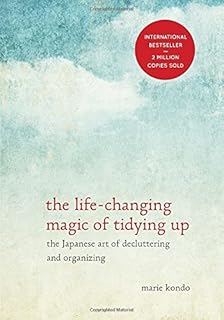sramana : Related Words Words similar in meaning to sramana
- śramaṇa«
- śramaṇas«
- jainism«
- karma«
- śramaṇa tradition«
- sramana movement«
- buddha«
- ajivikas«
- buddhism«
- ājīvikas«
- buddhist sramanic movement«
- soul«
- mahavira«
- hinduism«
- brahmin«
- ācāranga sūtra«
- monk«
- buddhist«
- concept«
- epistemic authority«
- mendicant«
- makkhali gosala«
- ajivika«
- śramaṇa movement«
- samsara«
- mortification«
- sramanas«
- rebirth«
- jain«
- jain philosophy«
- veda«
- sramanic school«
- buddhist text samannaphala sutta«
- buddhist sramana school«
- bhikkhu«
- vedic literature«
- belief«
- diverse philosophy«
- ahimsa«
- ājīvika school«
- sramanic movement«
- century bce«
- indian philosophy«
- tradition«
- jain monastic«
- jain canon«
- gosala«
- ancient india«
- renunciation«
- ājīvika«
- austerity«
- jaina text«
- orthodox hinduism«
- randall collins«
- anekantavada«
- liberation«
- renunciates«
- scholar«
- pre«
- cycle«
- basham«
- verse«
- tirthankaras«
- pali text society«
- wisdom publication«
- siddhartha«
- atom«
- code«
- fatalism«
- violence«
- indus valley«
- buddhist philosophy«
- ascetic«
- hedonism«
- atman«
- term«
- vedic«
- indus valley civilization«
- porphyry«
- kshatriya«
- negative light«
- life«
- doctrine«
- upanishad«
- evil«
- jains«
- trans«
- existence«
- brahman«
- secondary source«
- death«
- clement«
- creator«
- śramaṇic tradition«
- śramaṇa vow«
- śramaṇa view«
- śramaṇa system«
- śramaṇa philosophy«
- śramaṇa opponent«
- śramaṇa movements«
- śramaṇa leader«
- śramaṇa idea«
- śramaṇa dharma«
- śramaṇa culture«
- yasassi«
- tribal sage«
- term vatarazana«
- sūtrakrtanga record«
- sūtrakrtanga«
- subhadda mention«
- stronger austerity«
- sramanic theory«
- sramanic philosophy«
- sramanic jains«
- sramanic buddhism«
- sectarian manifestation«
- samanaeans«
- renunciate sannyasin«
- renunciate ascetic tradition«
- renunciant tradition«
- reliable alms«
- regarded extreme austerity«
- purana kashyapa«
- professor mahavir saran jain«
- prince ardraka«
- pre-6th century bce india«
- pakkudha kaccayana«
- pabbajito«
- other śramaṇa movement«
- natural omniscience«
- motification«
- moderate ascetic precept«
- moderate ascetic lifestyle«
- materialist element philosophy«
- majority jaina scholar«
- laumakis«
- hindu puranic text«
- heredity rank«
- ganacariyo«
- form tradition«
- equal sanctity«
- damadamis«
- cānakya«
- contemporary western culture«
- buddhist indian sramanic movement«
- brahminal school«
- brahmanical social structure«
- basic cultural framework«
- babylonian bardesanes«
- ancient western literature«
- ajivika monastic«
- ahimsa dharma«
- adversarial philosophy«
- acharyas umasvati«
- absolute agnosticism«
- fruit«
- ājīvika philosophy«
- uncreated universe«
- three mark«
- several śramaṇa movement«
- savaka phase«
- sarvabhuta«
- sanskrit śravasti«
- pakudha kaccayana«
- mention muni«
- martin wilshire«
- mala clothes«
- makkhali gosāla«
- jaina thinker«
- indian religious movement parallel«
- hindu ashrama system«
- frugal ascetic life«
- brahmanical theory«
- brahamanism«
- axiological merit«
- atom similar«
- ahimsa doctrine«
- consequence«
- upanishadic layer«
- shaivite king«
- sense familiar«
- sañjaya belaṭṭhaputta«
- regional hindu tradition«
- rebirth idea«
- pūraṇa kassapa«
- peripatetic monk«
- nāstika tradition«
- niyati doctrine«
- medieval jainism«
- mananat«
- jaina scholar«
- historic interaction«
- fronsdal«
- fourfold restraint«
- brahmanical concept«
- ashrama dharma«
- starvation«
- upanishadic period«
- sanjaya belatthiputta«
- samaṇa«
- rashtrakuta court«
- nigaṇṭha nātaputta«
- nigantha nataputta«
- mauryan emperor bindusara«
- mahāparinibbāna sutta«
- german novelist hermann hesse«
- buddhist texts«
- astika school«
- antinomian ethic«
- philosophy«
- yatis«
- vihāras«
- son ashoka«
- pali–english dictionary«
- naked monk«
- inescapable fate«
- bull symbol«
- buddhist pāli canon«
- brahmajāla sutta«
- spirituality«
- umasvami«
- purana kassapa«
- philosophies«
- obeyesekere«
- monk community«
- fourth tirthankara«
- daily social life«
- biased picture«
- india«
- extreme«
- theistic philosophy«
- late 1st millennium bce«
- kesin«
- indian culture«
- contemptuous comment«
- buddhist commentary«
- bhagchandra jain«
- alok prakashan«
- voluntary institution«
- heretical teacher«
- gangetic valley«
- avatar rama«
- ajivika sect«
- absolute determinism«
- denial«
- collins«
- conflict«
- western literature«
- paccekabuddha«
- elemental matter«
- discrete community«
- ajñana«
- text«
- shramanas«
- religious model«
- ganadharas«
- ajita kesakambali«
- theory«
- jaini«
- historical rise«
- chāndogya upaniṣad«
- brahmin origin«
- sāriputta«
- rival movement«
- quieting«
- jaina literature«
- evil karma«
- buddhist classic«
- syādvāda«
- reginald ray«
- ancient buddhist«
- parivrajaka«
- jain monastery«
- goddess«
- sanghi«
- padmanabh jaini«
- mahavrata«
- etymology«
- major indian religion«
- lay society«
- jain culture«
- buddhist monastic community«
- sramana tradition«
- kayotsarga«
- śrāmaṇera«
- extreme austerity«
- dīgha nikāya«
- nude male figure«
- ascetic tradition«
- rigorous practice«
- voluntary principle«
- savatthi«
- philosophical premise«
- karma doctrine«
- ancient indian philosophy«
- vedic hinduism«
- original scripture«
- inherent existence«
- disciple«
- āstika«
- samaññaphala sutta«
- monastic code«
- hedonistic life«
- geoffrey samuel«
- length discourse«
- kundakunda«
- doniger«
- vaisheshika school«
- cosmic principle«
- ashokavadana«
- śrāvakas«
- extreme asceticism«
- majjhima nikāya«
- mahāvīra«
- long discourse«
- d. r. bhandarkar«
- ganges valley«
- living habit«
- complete dedication«
- lay practitioner«
- jainas«
- maurice o'connell«
- material particle«
- alexandria«
- pundravardhana«
- haribhadra«
- modern hinduism«
- kumarapala«
- cārvāka«
- anatman«
- everything«
- jain tirthankaras«
- conduct«
- jain agama«
- anicca«
- line search engine«
- individual nature«
- bindusara«
- historical vedic religion«
- pratītyasamutpāda«
- jain literature«
- yoga philosophy«
- severe austerity«
- olivelle«
- clothes«
- rock edict«
- heterogeneous nature«
- substance«
- william stede«
- jain scholar«
- hemachandra«
- devadatta«
- sannyasin«
- ancient indian literature«
- yogic practice«
- gethin«
- complete truth«
- bhikkhuni«
- indian«
- leader«
- hindu literature«
- patrick olivelle«
- ancient school«
- inscription«
- rishabha«
- yogini«
- sunyata«
- independent origin«
- gani«
- mention«
- walshe«
- omnipotent god«
- school«
- their theory«
- jain tradition«
- fatalist«
- dependent origination«
- ātman«
- rhys david«
- metempsychosis«
- cosmic force«
- verbal root«
- vassa«
- their belief«
- believed«
- anatta«
- saṃsāra«
- objective evidence«
- monastic tradition«
- lotus position«
- multiple theory«
- cira«
- thanissaro bhikkhu«
- interpenetration«
- major library«
- mahabharata war«
- bactrians«
- interaction«
- indian text«
- follower«
- dukkha«
- chief disciple«
- brihadaranyaka upanishad«
- religious class«
- popular concept«
- true picture«
- prosperous community«
- jaina«
- dhammapada«
- chalukya«
- permissibility«
- samana«
- central premise«
- ritualism«
- jain text«
- chipstead«
- lay people«
- atomism«
- gautama«
- samkhya«
- shambhala publication«
- kolar district«
- chain«
- buddhist literature«
- bhaskar«
- animal food«
- historic role«
- ped«
- contemplative life«
- knower«
- hindu epic«
- rishis«
- neto«
- a. l.«
- material possession«
- moral law«
- basic building block«
- new translation«
- north indian«
- bodhi«
- major rival«
- translation«
- impermanence«
- path«
- philosophical idea«
- law book«
- fakir«
- idealization«
- scholarly debate«
- book iv«
- buddhist teaching«
- independent existence«
- evil deed«
- sadhu«
- rig veda«
- philosophical concept«
- complete freedom«
- distinct identity«
- chapter«
- hindu philosophy«
- closer relationship«
- common era«
- protest movement«
- contrast«
- boston«
- determinism«
- sangha«
- social support«
- significant presence«
- rigveda«
- vedanta«
- hindu god«
- medieval era«
- nothingness«
- moksha«
- nonviolence«
- main characteristic«
- vegetarianism«
- quality«
- material world«
- gautama buddha«
- distinguishing feature«
- difference«
- other scholar«
- ancient text«
- matter«
- earliest evidence«
- householder«
- south indian«
- hagiography«
- repute«
- reform movement«
- purana«
- causality«
- recluse«
- abstinence«
- saffron«
- social system«
- wandering«
- element«
yogi, food, fallacy, predominance, nature, middle, emptiness, birth, alms, strong emphasis, materialism, purgatory, pali, infusion, cu, rupert, varna, air, somerville, gil, dirty, nagpur, aggregation, hermann, central theme, nudity, diverse range, annotation, view, set, history, seeker, vishnu, southern india, 3rd century bce dhammapada, 2nd century ce text ashokavadana, 1st millennium bce., 14th century ce, 8th century bce., 1st millennium bce, 7th century bce, 8th century ce, 5th century bce, 6th century bce,




